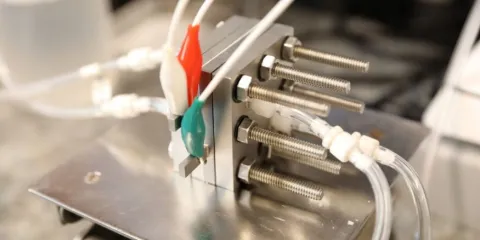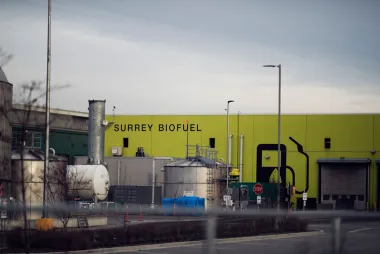UBC, U Paris researchers discover new way to recycle CO2

University of British Columbia (UBC) and University of Paris researchers have used an abundant and low-cost catalyst to efficiently transform carbon dioxide into carbon monoxide, a stable, industrial gas.
The research — published in Science — describes a fundamentally different way to develop technology that uses electricity to convert greenhouse gasses into valuable chemicals and fuels.
"Most known processes that convert CO2 use catalysts based on rare and precious metals like silver or gold,” explains Marc Robert, with the Molecular Electrochemistry Laboratory at the University of Paris. “We use molecules that are substantially less expensive.”
The technology uses renewable electricity to transform CO2 and water into carbon monoxide. The catalytic process operates at ambient pressure and temperature, which are easy conditions to set up.
"The catalyst is to a CO2 utilization system what the microprocessor is to the computer," says UBC chemistry and chemical engineering professor Curtis P. Berlinguette. “The performance of the catalyst defines the operating and capital costs of the unit. Our challenge is that merely a handful of good catalysts are available. These catalysts were discovered over 50 years ago, and it is difficult to make them any better. Our study provides an entirely new class of catalysts with millions of new design opportunities. We’re excited to see where the community takes these findings!”
Carbon monoxide — just one example of a product that the new system can produce from CO2 — is an essential building block in the healthcare and chemical industries.
“It can also be used to produce liquid or gaseous fuels such as methane — natural gas used to heat homes or run buses,” adds Robert.
Related Links
Molecular electrocatalysts can mediate fast, selective CO2 reduction in a flow cell
Media Contact
Chris Balma
balma@science.ubc.ca
604.822.5082
c 604-202-5047


